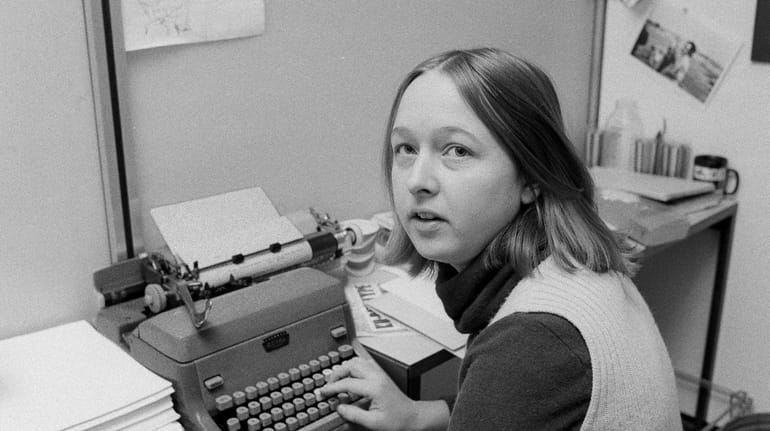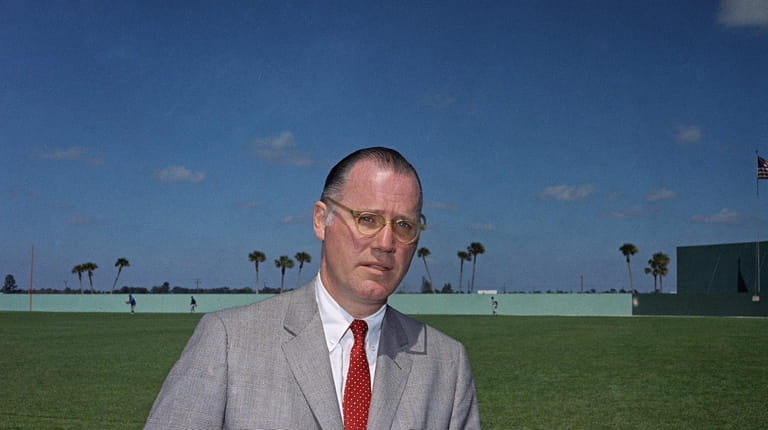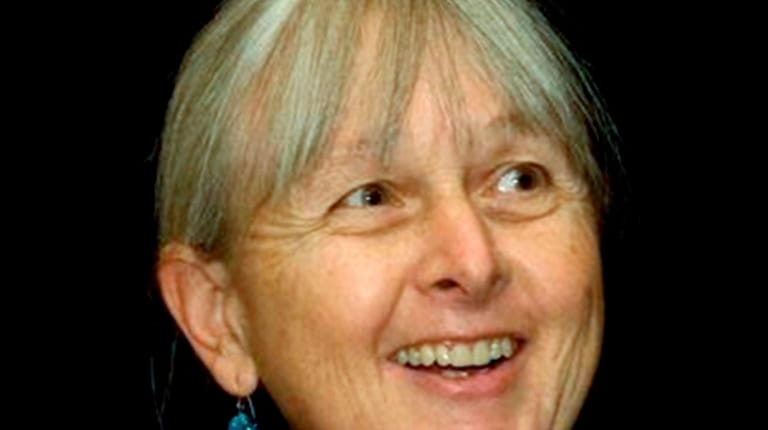Melissa Ludtke's lawsuit opened door for female sports journalists 40 years ago, but there still is a long way to go

Melissa Ludtke, a writer for Sports Illustrated, is shown on the job in her office in New York, Jan. 23, 1978. She is currently involved in a court case to allow women reporters in sports locker rooms. (AP Photo/Dave Pickoff) Credit: AP/Dave Pickoff
This past week, I was sitting in the press box at Citi Field prepping for an interview by looking at a 40-year-old photo of a young woman sitting at a typewriter.
I already had filed my story for that day, a story in which I had gone down to the Mets’ clubhouse and talked to David Wright about his pending retirement. I was getting ready for my next day’s assignment, for a phone call I was both excited and a little nervous about making.
That’s because I knew I likely wouldn’t have been sitting in the press box — I likely wouldn’t have been able to interview Wright or have carved out a career doing what I love — if it hadn’t been for the courage of Melissa Ludtke, the woman in this photo.
Forty years ago last Tuesday in a federal court in lower Manhattan, Ludtke, a reporter for Sports Illustrated, successfully sued Major League Baseball commissioner Bowie Kuhn and won the legal right for female reporters to have access to professional sports locker rooms.
In many ways, it’s hard to imagine today the pressure Ludtke encountered when she filed the lawsuit. She was 26 years old when baseball banned her from the clubhouses at Yankee Stadium during the 1977 World Series despite the fact that the Yankees and Dodgers had said they were OK with her entering.
Several years earlier, the NBA and NHL had started allowing women in the locker rooms. Jane Gross, who then covered the Nets for Newsday, entered both the Nets’ and the Knicks’ locker rooms. Yet hockey and basketball still were considered lower-tier sports compared with baseball, the national pastime.
After Ludtke’s editors and their lawyers spent several months trying to reach an agreement with baseball, they filed a lawsuit in December 1977.

Former Baseball Commissionr Bowie Kuhn. Credit: ASSOCIATED PRESS/Paul Shane
And then things exploded.
“You had baseball, nakedness and women’s lib. What else could you want?” Ludtke said with a laugh when I called her Wednesday. “It was a dinky case about trying to get into a clubhouse that was being argued in Federal District Court in lower Manhattan. But this case drew headlines for almost a year.”
While a woman standing up for herself is something we are getting used to seeing, it was a novel, tough and lonely thing to do back then. Ludtke can remember being sent down to the “Today” show for a six-minute interview on national television having received no advice on what to say or how to speak on television.
“They led me out to the lions,” she said, “but I learned quickly.”

Melissa Ludtke Co-Producer, Touching Home in China: in search of missing girlhoods Credit: Ellen Tuttle
Ludtke explained that she had been competitively hurt by baseball’s policy of giving her a separate place to talk to players. After Reggie Jackson hit three home runs in Game 6 to clinch the 1977 championship for the Yankees, Ludtke missed the celebration scene in the clubhouse.
“I needed to talk to Reggie and I waited out in the hall for 90 minutes,” she said. “When he finally came out, he said, ‘I’m sorry, Melissa, I’m really tired and I just want to go home.’ ”
On Sept. 25, 1978, Judge Constance Baker Motley ruled that Kuhn’s action had violated the equal protection and due process guaranteed by the 14th Amendment by “substantially and directly” interfering with her liberty to pursue her profession as a sportswriter.
Ludtke, now 67, is working on a memoir about what she went through. She said when she thinks about that time, she is struck by how much things have changed for women — and how much they haven’t.
There is a sense of pride in her voice when we talk about the fact that last Tuesday, exactly 40 years to the date of her ruling, it was announced that Andrea Kremer and Hannah Storm will be the first female broadcast duo to call an NFL game — or any major men’s sport.
There also is a sense of weariness when we talk about some of the nasty Twitter comments that were made in the wake of that announcement.
“What I failed to understand then is that it’s one thing to go into a court of law and have a judge or a jury rule and have a law passed or a policy changed,” Ludtke said. “It’s a whole different thing to change the cultural attitudes that have to change if that policy is going to find a way to move the culture and make an actual difference.”
Times have changed. But they need to change even more.
When I walked through the Mets’ press box last week after writing about Wright and thinking about Ludtke, I passed a long wall of photos of baseball writers through the ages. All told, there are 111 pictures on the wall. Only two — Hall of Fame inductee Claire Smith and longtime sports journalist Helene Elliott — are of women.

